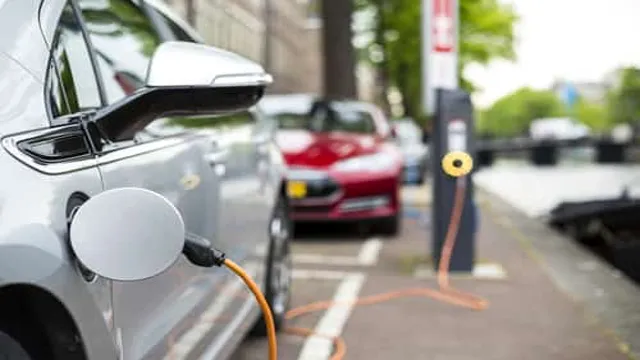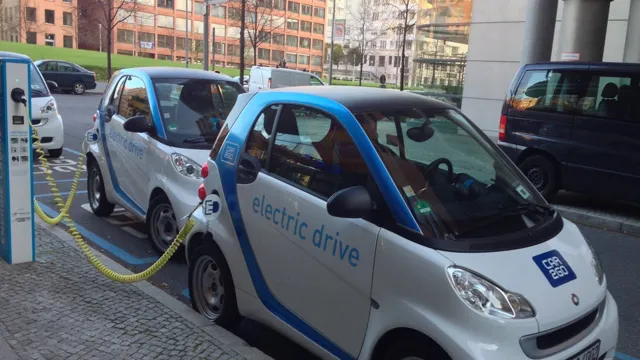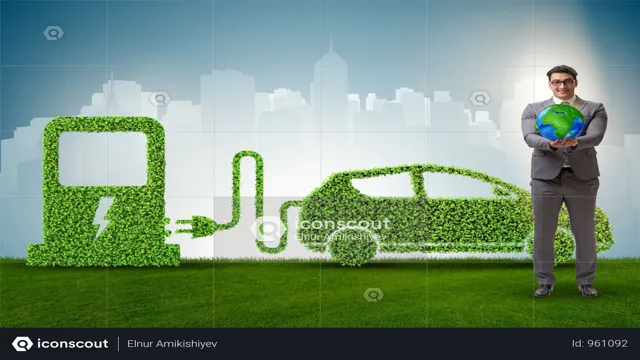The Ultimate Rough Guide to Electric Cars: Everything you Need to Know!
Electric cars have become increasingly popular over the past few years due to their eco-friendliness and low running costs. However, there are still many people who are unfamiliar with how electric cars work and what makes them different from traditional gasoline-powered vehicles. If you’re among the curious, then this blog post is for you! In this Electric Cars 101 article, we’re going to cover the basics of electric cars.
We’ll explore how electric cars work, the benefits of owning one, and how you can charge them. We’ll also take a look at some common misconceptions about electric cars and address any concerns you may have about switching to an electric vehicle. Think of this post as your introduction to the world of electric cars.
By the end of it, you’ll have a better understanding of what these vehicles are, how they work, and whether an electric car is the right choice for you. So sit back, relax, and let’s get started!
What are Electric Cars?
If you’re looking for a rough guide to electric cars, you’ve come to the right place. Simply put, electric cars are vehicles powered completely by electricity rather than gasoline or diesel fuel. They use rechargeable battery packs to store their energy, which powers an electric motor.
The absence of a traditional combustion engine means that electric cars are much cleaner and more environmentally friendly than traditional gas-powered vehicles. They produce no emissions, and they’re much quieter to drive. Plus, they require less maintenance and tend to have lower operating costs in the long run.
While electric cars have been around for a while, recent advancements in battery technology and charging infrastructure have made them a more practical choice for everyday drivers. So, if you’re considering making the switch to electric, it’s worth doing some research to find out if it’s the right choice for you.
How Do Electric Cars Work?
Electric cars are a type of vehicle that runs on electricity rather than gasoline or diesel fuel. An electric car works by using an electric motor powered by a rechargeable battery pack. The motor turns the wheels directly, eliminating the need for a traditional internal combustion engine.
To charge the battery pack, electric cars can be plugged into an electrical outlet at home or at a public charging station. The process of charging the battery can take a few hours or several days, depending on the size of the battery pack and the speed of the charging station. Once the battery is fully charged, the electric car can typically travel up to several hundred miles on a single charge, depending on the specific model.
Compared to traditional gas-powered cars, electric cars are more environmentally friendly, emitting no tailpipe pollutants, and are much quieter during operation. They are also more cost-effective to operate in the long term, due to lower fuel and maintenance costs.

Types of Electric Cars
Electric cars are vehicles that run purely on electricity and are becoming increasingly popular due to growing environmental concerns. There are three main types of electric cars: battery electric vehicles (BEVs), plug-in hybrid electric vehicles (PHEVs), and hybrid electric vehicles (HEVs). BEVs rely solely on rechargeable batteries to run and produce zero emissions, making them the most environmentally friendly option.
PHEVs use both electric and gasoline power, allowing for a longer driving range, while HEVs use a combination of electric power and gasoline to increase fuel efficiency and decrease emissions. Each type of electric car has its advantages and disadvantages, depending on the individual’s needs. However, they all offer a much cleaner and eco-friendly option than traditional gas-powered cars.
As electric cars continue to evolve, we can expect to see more advanced technologies and innovations in the future.
Benefits of Driving Electric Cars
If you’re considering purchasing an electric car, you may be wondering what the benefits are. Well, let me give you a rough guide! For starters, electric cars are much better for the environment as they produce zero emissions. This means you’ll be doing your part to reduce air pollution and combat climate change.
Plus, electric cars are much cheaper to operate as they require less maintenance and cost less in fuel than a gasoline vehicle. You’ll also save money in the long run as most countries offer tax incentives and rebates for purchasing an electric car. But perhaps one of the best benefits of driving an electric car is the incredible torque and smoothness of the ride.
Electric cars offer instant power and acceleration, and they’re much quieter than their gasoline counterparts. So if you care about the environment, want to save money, and enjoy a smooth ride, then investing in an electric car may be the right choice for you!
Environmental Impact
Electric cars are becoming increasingly popular due to their numerous environmental benefits. By driving an electric car, you can significantly reduce your carbon footprint and help to mitigate climate change. Unlike traditional gas-powered cars, electric cars produce zero emissions, meaning that they don’t release any harmful pollutants into the air.
Additionally, electric cars are much more energy-efficient than traditional cars, so they require less energy to operate. This means that you’ll spend less money on fuel and contribute less to global energy consumption. Switching to an electric car is a great way to save money on fuel costs while also doing your part to protect the environment.
Plus, with the growing number of charging stations across the country, you’ll have more opportunities than ever to keep your car charged and ready to go. So why not make the switch to electric? Your wallet and the planet will thank you.
Cost Savings
“Cost Savings” Driving an electric car has many benefits, and cost savings is certainly one of them. With an electric car, you can save a substantial amount of money on fuel costs. Instead of relying on gasoline, which is typically more expensive than electricity, you can power your car with a much cheaper and more sustainable source of energy.
In addition to fuel savings, electric cars also require less maintenance than traditional vehicles, which can result in significant cost savings over time. For example, electric cars have fewer moving parts than internal combustion engines, which means there are fewer parts to break and replace. Furthermore, electric vehicles often come with tax incentives and other government subsidies, which can make them even more affordable.
All of these factors make electric cars an attractive option for those who are looking to save money in the long run while reducing their carbon footprint.
Potential Tax Incentives
Electric cars are not only good for the environment, but they also offer potential tax incentives for the owner. These tax credits and rebates vary depending on the state, but they can offer significant savings for those who switch to an electric vehicle. For example, in California, electric car owners can receive up to $7,000 in rebates, while in Colorado, they can receive up to $5,000 in rebates.
Additionally, electric car owners may be eligible for federal tax credits up to $7,500. These incentives not only help offset the initial cost of the vehicle but also offer long-term savings on fuel costs. With gas prices continually increasing, owning an electric car can be a smart financial decision.
Moreover, driving an electric car can also lead to reduced maintenance costs, as electric cars have fewer moving parts compared to traditional gas-powered vehicles. Overall, there are numerous benefits to driving electric cars, and understanding the potential tax incentives and savings can make the switch even more appealing.
Common Concerns About Electric Cars
If you’re considering making the switch to an electric car, you may have some concerns that are holding you back. One common concern is the range of the vehicle. While it’s true that electric cars usually have a shorter range than traditional gas-powered cars, many newer models can go over 200 miles on a single charge.
Additionally, with more charging stations popping up all the time, range anxiety is becoming less of an issue for electric car drivers. Another concern is the upfront cost of an electric car. While they can be initially more expensive than gas-powered cars, the cost is offset by lower maintenance and fuel costs over time.
Finally, some people worry that the batteries in electric cars won’t last very long. However, most manufacturers offer long warranties on their batteries, and many drivers have reported that their batteries have held up well over time. Overall, while there are certainly some considerations to make before purchasing an electric car, the benefits of making the switch are becoming increasingly clear.
Range Anxiety
One of the common concerns people have about electric cars is something called “range anxiety.” This is the fear that your electric vehicle won’t have enough juice to get you where you need to go and you’ll be stranded without a charging station. While this is a legitimate concern, there are ways to mitigate this anxiety.
One option is to plan your routes ahead of time and make sure there are charging stations available along the way. Another option is to invest in a vehicle with a longer range, which can alleviate some of the concerns you may have about running out of battery power. Despite these concerns, many people have found that owning an electric car provides significant benefits, including lower operating costs, better environmental impact, and smoother driving experiences.
Charging Station Availability
When considering purchasing an electric car, one of the common concerns is the availability of charging stations. It’s a valid concern – after all, the last thing you want is to be stranded on the side of the road with a dead battery. However, it’s important to note that the availability of charging stations has greatly improved in recent years.
In fact, there are now over 30,000 public charging stations in the United States alone. Additionally, many businesses are now installing charging stations in their parking lots, making it even more convenient to charge your vehicle while running errands. While it may still take some planning ahead to ensure you have a charging station available on longer trips, with the growing number of charging options available, it’s becoming less and less of an issue.
So, don’t let charging station availability deter you from experiencing the many benefits of owning an electric car.
Electric Cars in the Future
A rough guide to electric cars suggests that the future of transportation may rely on battery-driven vehicles. With more companies investing in electric car models, it’s evident that people are becoming more environmentally conscious and prefer vehicles that are fuel-efficient, saving not only the environment but also their wallets. Electric cars have been improving over the years and now offer features such as fast charging, long-range capabilities, and affordable price points.
Furthermore, the costs of maintenance are significantly lower than traditional gasoline cars, and there is a reduction in noise pollution. Although there are a few challenges such as limited charging infrastructure and longer charging times, it won’t be long until these issues are resolved. With advancements in technology, electric cars are set to revolutionize the automotive industry.
Conclusion
In conclusion, electric cars are revolutionizing the way we think about transportation. They offer a cleaner, more eco-friendly alternative to traditional gas-powered cars. Not only that, but they also provide an incredibly smooth and quiet ride.
Plus, with the ever-growing network of charging stations, range anxiety is becoming a thing of the past. So, if you’re looking to make a positive impact on the environment while stylishly cruising around town, an electric car may be just the thing for you. Because let’s face it, electric cars aren’t just the future, they’re the present.
And who doesn’t want to be ahead of the curve?”
FAQs
What are electric cars?
Electric cars are vehicles that run on electricity stored in rechargeable batteries.
How do electric cars work?
Electric cars work by converting the stored battery power into kinetic energy, which is used to power the motor.
What are the advantages of electric cars?
Electric cars have many advantages over traditional gasoline-powered cars, such as being more environmentally friendly and cheaper to operate.
What is the range of an electric car?
The range of an electric car varies depending on factors like the model, battery capacity, and driving conditions. On average, they can travel between 100-300 miles on a single charge.
How long does it take to charge an electric car?
The time required to charge an electric car can vary widely depending on the charging method and battery capacity. It can take anywhere from 30 minutes to several hours to fully charge an electric car.







